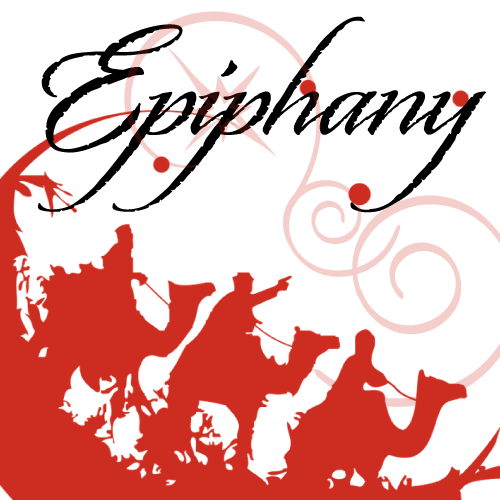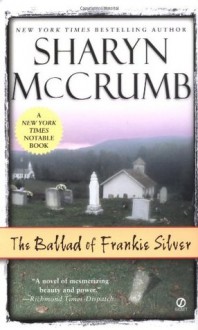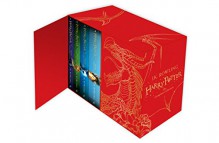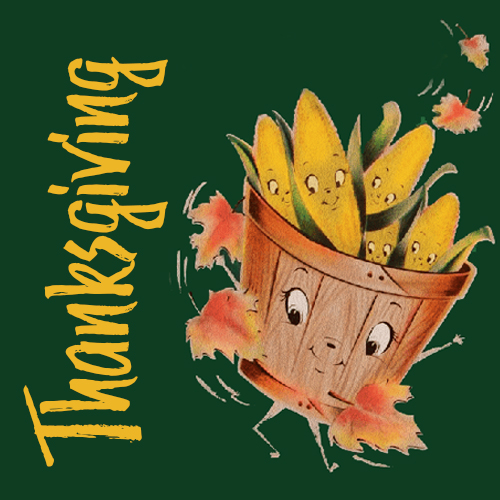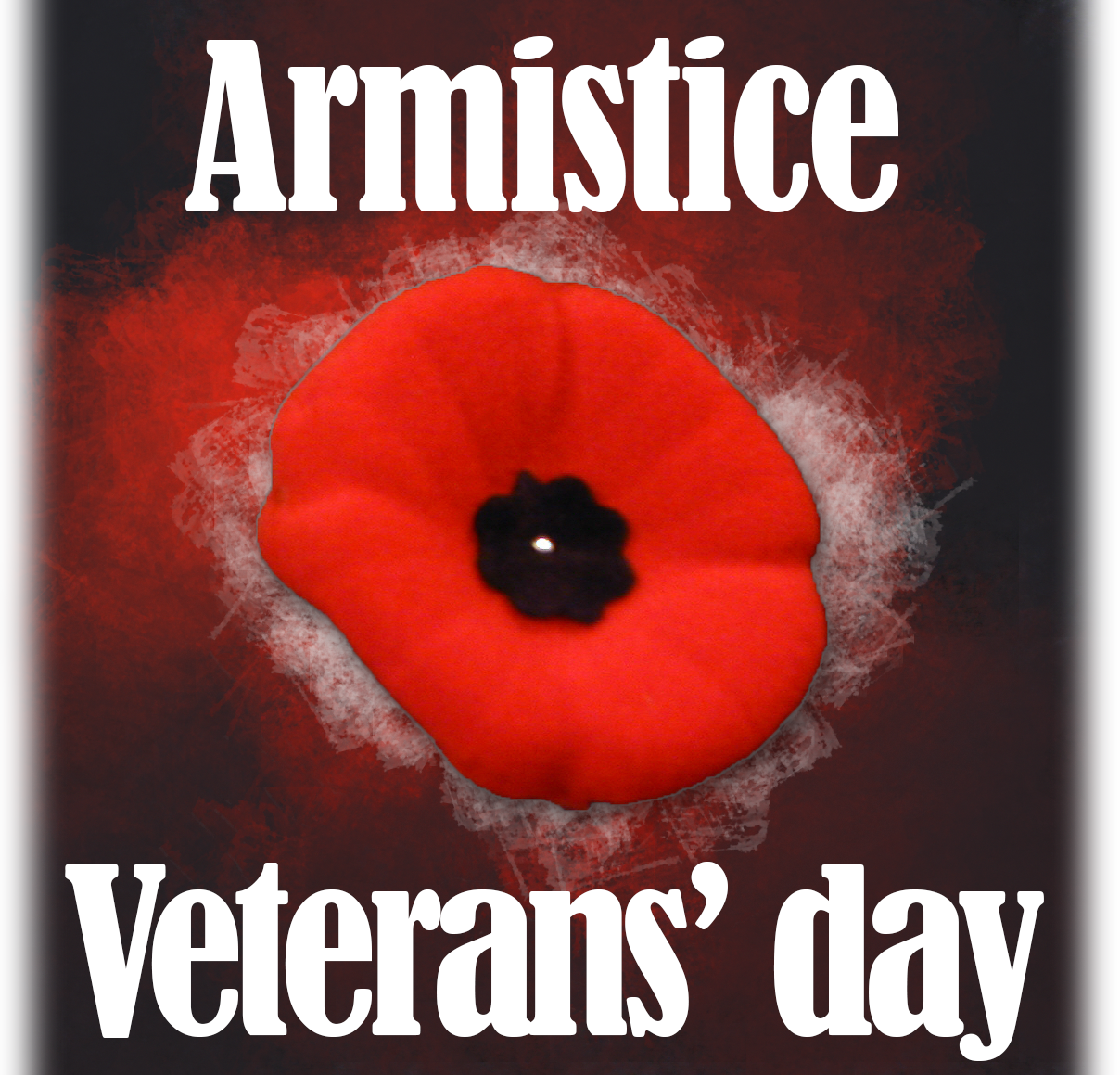 The authors by whom I've read the most books don't coincide exactly, but substantially with those that I'd also consider part of my personal canon; i.e., the books that have most impacted my thinking and / or to which I find myself returning again and again, be it for inspiration, comfort, or whatever other reasons. So, since I've always wanted to follow up with a post of my own on Moonlight's original "personal literary canon" post, somewhat late in the game I've decided to use this "24 Festive Tasks" entry (and Mawlid, Task 2 -- literary pilgrimages) to finally get around to it. At the risk of some serious rambling and long lists of name-dropping:
The authors by whom I've read the most books don't coincide exactly, but substantially with those that I'd also consider part of my personal canon; i.e., the books that have most impacted my thinking and / or to which I find myself returning again and again, be it for inspiration, comfort, or whatever other reasons. So, since I've always wanted to follow up with a post of my own on Moonlight's original "personal literary canon" post, somewhat late in the game I've decided to use this "24 Festive Tasks" entry (and Mawlid, Task 2 -- literary pilgrimages) to finally get around to it. At the risk of some serious rambling and long lists of name-dropping:
The Classics
William Shakespeare: I wasn't a fan of his in high school, though I did very much like Macbeth, The Taming of the Shrew, and Romeo and Juliet (the latter, actually quite a bit better than I like it right now); but once I'd been bitten there was no stopping me. I've seen many (though not yet all) of Shakespeare's plays performed live, some repeatedly, I own the BBC "Complete Shakespeare" set featuring all plays attributed to him at the time of production in the late 1970s / early 1908s, and no other single author (not even the much more prolific Agatha Christie; see below) is taking up as much space on my bookshelves and DVD racks. For a few years before there was such a thing as Wordpress and Blogger, I actually owned a website called "Project Hamlet" -- chiefly dedicated to my personal take on the Prince of Denmark's story, but also featuring information on Shakespeare himself. Hosting and renewing the domain got too expensive after a while, so I let the domain expire, but I'm still hoping to resurrect it some day as a Wordpress blog.
Jane Austen: I've read all seven of her completed novels, as well as some of her juvenalia (The History of England, which she wrote at [gasp] age 13, is a compete and utter hoot) and letters (well, Selected Letters in the Oxford Classics edition). I've also read her uncompleted novels (Sanditon and The Watsons) at least once, but probably should refresh my recollection of those at some point. -- It's been said before by more authoritative voices, but unfortunately bears repeating time and again: Whoever dismisses Austen as "only a romance" or "only a chick-lit" writer probably hasn't read a syllable by her in their lives and can get stuffed. On general principles (there's no such thing as "only romance" or "only chick-lit), but as importantly on Austen's behalf: she was a sharp-eyed social observer and a satirist of the first order, who just happened to make women's stories her focus because she was a woman herself ... and who wrote about love, marriage and the hunt for moneyed gentlemen, because these (especially marriage, and the need to marry well regardless of a love match) were the factors that literally everything in a woman's life depended on in Regency society -- as it had, for the better part of Western history until then.
The Brontë Sisters: I fell in love with Charlotte Brontë's Jane Eyre before I'd ever even heard of Jane Austen, and to this day this book, and Anne's The Tenant of Wildfell Hall (and to a somewhat lesser extent, Charlotte Brontë's Shirley) exemplify 19th century women's -- and indeed every woman's -- struggle for self-respect, independence, and the attempt to square the circle and maintain these achievements even in marriage. Emily's Wuthering Heights is a bit to (melo)dramatically overwrought to be my kind of jam, but I love her poetry ... and the siblings' (including their brother Bramwell) juvenalia are bursts of imagination and simply a complete hoot.
Elizabeth von Arnim: I have by far not yet read all of her books, but enough of them to know that every single one of those that I do read makes me want to break out in a (very uncharacteristical) radiant smile. Elizabeth's Adventures in Rügen also was one of those books that inspired me to visit a place that a famous author had visited, and trace her steps there.
Thomas Mann / the Mann family: I read all of Thomas Mann's novels (yes, including all four novels of the Joseph tetralogy) and short stories eons ago when I was in university -- which is long enough ago for me to have forgotten a lot of details, especially of that part of his literature that I haven't revisited since, but I'm still partial to Buddenbrooks, The Magic Mountain, Doctor Faustus and Felix Krull, as well as some of his better known short stories (including and in particular, Death in Venice and Mario and the Magician). The Manns -- all of them, but especially Thomas -- were held to be national treasures in my family, so it's just as well I actually did take to their books; in addition to Thomas's books also his brother Heinrich's Man of Straw and Blue Angel, as well as his son Klaus's Mephisto.
John Steinbeck: I came to Steinbeck via the James Dean movie adaptation of East of Eden and was an instant fan -- perhaps because I was allowed to discover his books for myself, instead of having them presented to me as "Must Read" / Important literature in school. Few authors have such an unmatched insight into the human soul, and the ability to present complex situations and emotions precisely and down to the last nuance, with very sparing words (yes, I know East of Eden is a brick, but just take a look at The Grapes of Wrath or Of Mice and Men). Steinbeck, along with that part of my family who used to live in the American Southwest (Texas, but still ...) on and off when I was growing up are also chiefly responsible for my interest in California, long before I'd ever actually visited the Golden State for the very first time.
Oscar Wilde: Much more than the master of the witty one-liner and some of the most charming and heartrending fairy tales ever written, Wilde was actually a widely-read and -educated literary and social critic, journalist, conversationalist and focal point of London society long before his plays conquered stages at home and abroad. He may have espoused the idea of letting each literary work stand for itself and define its own merit ("l'art pour l'art" / "art for its own sake"), but it is impossible to miss the profound underlying humanity of his works -- in his plays as much as in the products of his imprisonment, such as De Profundis and The Ballad of Reading Goal. And while there are many great biographies of Wilde in book form, for a first take you can't do any better than watching the movie Wilde starring (who else?) Stephen Fry (whom Wilde's grandson and editor Mervyn Holland has called "a wonderful Oscarian figure").
Robert Louis Stevenson: My first introduction to Scotland (Edinburgh and elsewhere), decades before I ever visited. I binge-watched the 1970s' TV adaptation of Kidnapped (running under the name The Adventures of David Balfour) as a teenager and was instantly captured, but have since learned in other books, too, just how acute an observer of human nature -- and of Scottish society -- Stevenson was. When I finally visited Scotland for the first time, even more than a century later I still felt instantly at home, not least thanks to Stevenson (and Ian Rankin -- see below).
Greek Mythology: Believe it or not, the heroes and gods of Greek mythology were actually the very first childhood heroes I can recall, and I never stopped regretting we hardly saw any ancient classic literature on our high school curriculum (which instead was crammed with the mandatory 1970s/80s reform agenda). But seriously, why would have wanted to read about other kids who didn't know anything more about life than I did myself if I could read about deities like Zeus's clever daughter Athena and her equally fiendishly clever protégé Odysseus instead? I've since revisited the Greek classics in every form I could find and they still hold a special place in my heart.
Mysteries
Arthur Conan Doyle / Sherlock Holmes: Still the grand master -- both the detective and his creator -- that no serious reader of mysteries can or should even try to side-step. I've read, own, and have reread countless times all 4 novels and 56 short stories constituting the Sherlock Holmes canon, and am now making my way through some of the better-known /-reputed Holmes pastiches (only to find -- not exactly to my surprise -- that none of them can hold a candle to the original), as well as Conan Doyle's "non-Holmes" fiction. Oh, and for the record, there is and always will be only one Sherlock Holmes on screen, and that is Jeremy Brett.
The Golden Age Queens of Crime
Agatha Christie: Like Sherlock Holmes, part of my personal canon from very early on. I've read and, in many cases, reread more than once and own (largely as part of a series of anniversary omnibus editions published by HarperCollins some 10 years ago) all of Agatha Christie's novels and short stories published under this name, as well as her autobiography, with only those of her books published under other names (e.g., the Mary Westmacott romances) left to read. As with ACD's Holmes, there is only one defining screen incarnation of both of Christie's major detectives to me: David Suchet as Poirot and Joan Hickson as Miss Marple. (And I'm happy in the knowledge that in the latter respect, Dame Agatha and I would seem to be in agreement.)
Dorothy L. Sayers: My mom turned me onto Sayers when I was in my teens, and I have never looked back. I've read all of her Lord Peter Wimsey novels and short stories, volume 1 of her collected letters (which covers her correspondence from childhood to the end of her career as a mystery writer), and some of her non-Wimsey short stories and essays. Gaudy Night and the two addresses jointly published under the title Are Women Human? are among my all-time favorite books; not least because they address women's position in society decades before feminism even became a mass movement to be reckoned with, and with a validity vastly transcending both Sayers's own lifetime and our own. -- Next steps: The remainder of Sayers's non-Wimsey stories and of her essays, as well as her plays.
Ngaio Marsh: A somewhat later entry into my personal canon, but definitely a fixture now. I've read all of her Inspector Alleyn books and short stories and reread many of them. Still on my TBR: her autobiography (which happily is contained in the last installments of the series of 3-book-each omnibus volumes I own).
Patricia Wentworth: Of the Golden Age Queens of Crime, the most recent entry into my personal canon. I'd read two books by her a few years ago and liked one a lot, the other one considerably less, but Tigus expertly steered the resident mystery fans on Booklikes to all the best entries in the Miss Silver series, which I'm now very much looking forward to completing -- along with some of Wentworth's other fiction.
Georgette Heyer: I'm not a romance reader, so I doubt that I'll ever go anywhere near her Regency romances. But I'm becoming more and more of a fan of her mysteries; if for no other reason than that nobody, not even Agatha Christie, did viciously bickering families as well as her.
Margery Allingham: I'm actually more of a fan of Albert Campion as portrayed by Peter Davison in the TV adaptations of some of Allingham's mysteries than of her Campion books as such, but I like at least some of those well enough to eventually want to complete the series -- God knows I've read enough of them at this point for the completist in me to have kicked in long ago. I've also got Allingham's very first novel, Blackerchief Dick (non-Campion; historical fiction involving pirates) sitting on my audio TBR.
Josephine Tey: I have barely read half of Tey's books so far (if that), but her tone and topics definitely strike a chord with me. So I have acquired every book of her Inspector Grant series and I am hoping to complete the series soon -- and also, to dive into some other books by / related to Tey.
Contemporary Mysteries
P.D. James
Ian Rankin
Michael Connelly
[Text to be supplied -- I'm being called away just when I'm finally getting ready to complete this post!]
Historical Mysteries
I'm a history nerd, and with that comes a love of historical fiction; yet, the only two series of historical fiction that I would well and truly consider part of my personal canon are both mystery series as well:
The Chronicles of Brother Cadfael: He may be a monk when we meet him, but nobody epitomizes "father figure" to me more than Ellis Peters's Brother Cadfael. Way above and beyond Peters's unfailingly spot-on historical research and her intimate knowledge of Shrewsbury, Shropshire, and the Welsh borderland (the Marches), I love this series for Cadfael's humanity, his insight into human nature and acceptance of every person on their own terms, as well as, of course, his warmth, intelligence, and broad-mindedness. And nobody else could have embodied Cadfael like Derek Jacobi, whom I first encountered in that series (not, like others, in I, Claudius) and became an instant fan.
C.J. Sansom / Matthew Shardlake: I binge-read the first three Shardlake books and consider myself an instant fan ever since. Shardlake and his associates are engaging characters, and nobody does the Tudor court and its manifold machinations like C.J. Sansom. Can't wait to see where he is going to take the series now that Henry VIII is dead and the reign of his children has been ushered in.
Fantasy
I'm not a major reader of fantasy (and even less so, science fiction), but three authors are most definitely part of my personal canon, because their books vastly transcend the boundaries of that (or any) genre:
J.R.R. Tolkien: I first read The Lord of the Rings when I had barely turned 13, and The Hobbit a year or two later. Frodo and Gollum between them may have taken The Ring back to Mount Doom, but it has never lost its pull on me and never will. The Peter Jackson movie adaptations of The Lord of the Rings are not perfect, but I've become a big fan of theirs, too, and wouldn't want to miss them from my personal movie library now, either. (The adaptations of The Hobbit are a different matter, Gandalf and Thorin Oakenshield notwithstanding.)
Terry Pratchett: I'm a relatively late Discworld devotee, but I'm seriously wondering what took me so long. Pratchett's literary genius, sense of humor, and fiendish way of mixing social commentary, send-ups of iconic topics, genres, characters and other literary conventions, and clever, surprising plotlines into a creation all of its own is unmatched -- and though I have a fair way to go yet to finish the Discworld novels, I already know that I'll regret that moment when it comes at last.
J.K. Rowling / Harry Potter: I'm instinctively turned off by hype of any kind, so you can probably imagine my initial reaction to Harry Potter, quite probably the most hyped literary series of the past 20+ years. But Harry and his friends won me over on their own merits ... well, and those of J.K. Rowling's writing. I revisited the entire series earlier this year and was enchanted all over again -- so much so that I splurged and invested in the recently-published hard cover boxed set, as well as the boxed set of "Hogwarts Library" books (Phantastic Beasts, Quidditch Through the Ages, and The Tales of Beedle the Bard), as well as starting the Gryffindor and Ravenclaw "collectors' editions" series of the Harry Potter books.
Children's / YA Literature
Astrid Lindgren: When I was barely old enough to read, Pippi Longstocking taught me that girls don't have to be afraid of anybody and they can go everywhere they set their minds to. I still believe that to this day. -- Some of my childhood friends and I also loved her Noisy Village (Bullerbyn, or in German, Bullerbü) series well enough to emulate the characters and stories in our games.
The Three Investigators: The series I blame like practically no other for turning me into a mystery fan. For my money still one of the best-ever conceived mystery series ... and an honest-to-God crime hunt with input from Alfred Hitchcock himself; what's not to like? (The German incarnation was called "The Three ???" [or "The Three Question Marks"], incidentally, and featured a red, white and blue question mark on each book cover.)
Enid Blyton: I didn't read anywhere near all of her books and series, but her Five Friends series satisfied basically the same youthful reading desires as did The Three Investigators ... and I was also a dedicated reader of her St. Clare's / O'Sullivan Twins series, even after I started attending a school that offered both full and half board in addition to "ordinary" class attendance, and from personal experience concluded that her version of a boarding school was wildly fictitious -- which didn't stop me from wishing, however, that just a few of the things from her books were actually happening in my school, too. (We did make good on the "secret nighttime parties" thing on some school trips at least.)
Ellis Kaut / Pumuckl: Like Pippi Longstocking and the Bullerbyn children, Ellis Kaut's creation, the kobold / gnome Pumuckl who some day suddenly decides to take residence in a Munich master carpenter's workshop, was a very early companion of my childhood -- and I would dearly have loved to meet him and to believe that the footsteps that one day showed up on the beach where we were vacationing were really his. Alas, they were only a Pumuckl-style prank that my cousins played on me ...
Max Kruse / Urmel: The last, but by no means least literary companion of my early childhood was the dinosaur baby Urmel, who hatches on an island "right under the equator" where a Dr. Dolittle-like professor is living with his merry band of tallking animals, all of which have a particular (and very funny) phonetic quirk associated with the sounds they ordinarily make as animals. A childhood friend first turned me onto the Urmel stories as they were presented in a TV program by Germany's most famous puppet theatre company (they're still in existence and in business) -- I instantly had to have the books as well.
Guilty Pleasures
Karl May: Another writer whose books I swallowed hide and hair as a child -- and whose protagonists were among my very first childhood heroes -- was German Western / travel adventure writer Karl May. Never mind that he only ever visited the places he wrote about later in life (if at all), and never mind that his writing is replete with the facile clichés of his time, his novels were / are gripping enough to have spawned an enormous fan base in Germany to this day, complete with annual productions of stage adaptations of his most famous books in several outdoor theatres dedicated entirely to his works; and the 1960s and 1970s screen adaptations of his Westerns propelled his two major heroes (the Apache chief Winnetou and his white "blood brother", a German-born trapper / mountain man known as Old Shatterhand) to even greater iconic stature.

 Log in with Facebook
Log in with Facebook 

